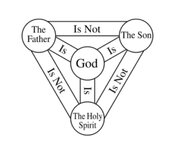Would you be willing to define what you mean by "none of us have experienced it yet?" What would you define as "having experienced the afterlife?"
The direct way of asking this is could someone have died, come back to life and be able to say that they have seen the afterlife?
I mean exactly that. I don't think anyone really knows what happens after death. If someone died and came back to life, how would we know the afterlife they described didn't exist only in their head? Maybe they're exactly right or maybe it was all a dream.
The data shows health and life benefits to having faith in God.

Beyond beliefs: does religious faith lead to a happier, healthier life?
The stress-reducing, life-extending benefits of religion can offer useful strategies even for non-believers, say scientistswww.theguardian.com
edit: I typed out a line-by-line response to the main talking points of this article and somehow the formatting got trashed from creating to posting so I removed it. The below point still stands and captures the gist of both the article and my response.
The health and life benefits "provided by religion" are great for those who can't find them elsewhere, but none mandate religion to be obtained. You can live a clean life, have healthy social connections, cultivate positive emotions and happiness, and have a sense of purpose and meaning all without religion. Many people may struggle with this on their own, and for them perhaps religion is a great way to achieve things that were once out of reach without it.

